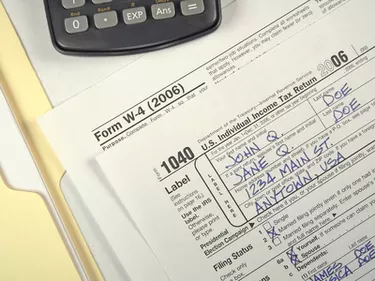
Commercial property represents a significant capital investment. Because it is extremely easy for the value of a piece of commercial real estate to reach into the millions, if not hundreds of millions, of dollars, individuals and entities considering a sale of a piece of commercial property should give careful consideration to the tax implications of the transaction.
Capital Gains Tax
Video of the Day
Assuming that your commercial property has appreciated from the time that you bought it, you will be subject to capital gains tax on the entire gain. If you held it for less than a year, your gain will be taxed as regular income. If you have held it for over one year, it qualifies as a long-term capital gain and is typically taxed at the 15 percent rate.
Video of the Day
Recapture Tax
While you owned your commercial property, you were allowed to depreciate it. Depreciation is a way of gradually reducing a building's value as it ages and is "used up." If you sell it for more than its depreciated value, you will also have to pay tax on the amount that you depreciated. In other words, if you took a million dollar property, wrote off $300,000 in depreciation and sold it for $1.1 million, you would have a $100,000 capital gain and $300,000 in accumulated depreciation, also referred to as a Section 1250 gain. Section 1250 gains are federally taxed at 25 percent.
State Taxes
If you live in a state with an income tax, you will also need to pay state tax on any gain when you sell a property. Although laws vary from state to state, most states tax both capital gains and accumulated depreciation as regular income, meaning that you will need to pay your state's prevailing income tax rate in addition to the federal capital gains and depreciation recapture taxes.
1031 Exchanges
If your intent is to sell your commercial property and buy more commercial property, you should carefully consider doing a 1031 Exchange. In a Section 1031 tax-deferred exchange, you trade a piece of appreciated investment property for another piece of like-kind property by following a number of IRS-defined procedures and time lines. If you do this, you can carry the old property's tax basis forward into the new property and not have to pay capital gains or depreciation recapture tax on the sale. Most states will also defer state income tax, as well.